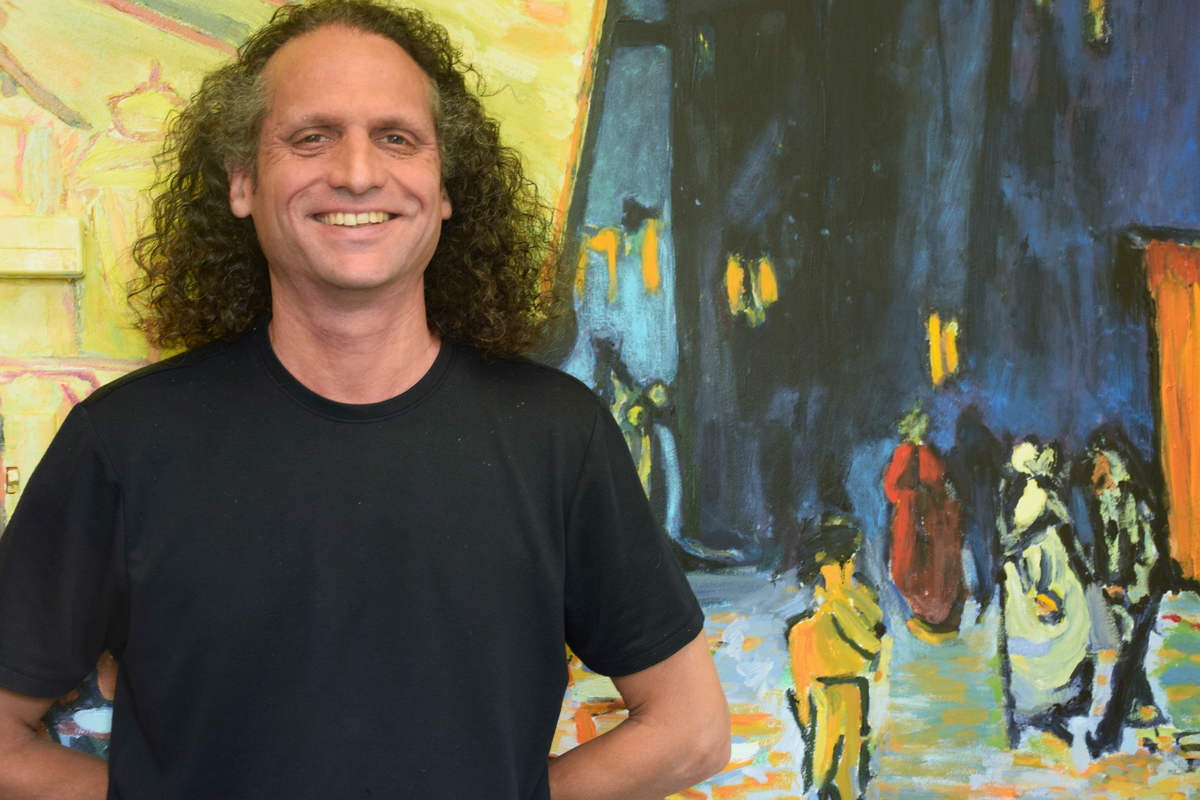
Meet Jeremy Caplan, kicking off as our September 2018 Instructor of the Month. Photo credit: Michaela Ream
What do you teach?
It's PSYCO 409 - Honours Seminar II, that's the science code, for students enrolled in the BSc, or PSYCO 400 - Honours Seminar II, that's the arts code for students enrolled in the BA. Both are once-a-week courses that you take over both Fall and Winter terms.
I've also used the 403/505 for "Computational Memory Models" and I taught PSYCO 375, Introduction to Cognitive Neuroscience, a bunch of times. In the past I've also taught PSYCO 371, Neurobiology of Learning and Memory, and PSYCO 377, Human Neuropsychology.
What's the coolest thing about this subject area?
I think the coolest thing about this topic is that it's incredibly unexplored. We actually know very little and when you look at what you imagine we must know about the topic, it turns out we don't.
What would you suggest to students for them to take this course or study?
What I usually do is I try to emphasize the approach: the way people structure experiments and the way they learn from data. So, what are you measuring and how to think about that or how do people gather evidence and build their arguments. I think it's more worthwhile to spend a lot of time on really understanding, rather than just focusing on the results-the process, more than the content.
What teaching methods do you like to apply with your students?
I like to have students guide the course content by responding to their interests. In the seminar course, I'll suggest lots of readings; but I like when people bring in their readings or suggest topics. They choose what they're interested in-and then we have a proposal presentation at the beginning and a final presentation at the end, and then a paper. But they present the material twice to the class, and then that becomes course content.
In the large courses I try to focus more on not so much transmitting data to students, but giving them the behind-the-scenes perspective. So, what can I tell you that you can't just get by reading because the content is all published? It's out there and students can read. So I want you to do this to understand how these researchers are thinking in the field, so that when you read a paper you go 'oh yeah I get it, I know how that works, I've seen that before.' So then, they'll be able to look at a recent issue of the Journal of Cognitive Science, read it, and have a chance of understanding it to the level that they could actually critique it and say: 'okay, I get what they did and understand why they concluded what they did, but here's limitation, and here's what I might do next-so I like to focus on that level.
"My most useful piece of advice probably would be to criticize what you read and to criticize everything." -Jeremy Caplan
What piece of advice or guidance do you like to give to your students?
My most useful piece of advice probably would be to criticize what you read and to criticize everything. The whole nature of cognitive psychology especially, is to be very skeptical and cautious and there are always alternative explanations for everything and always debates between things.
Even fourth year undergraduates who are doing their own research are, from my perspective, way too hesitant to criticize published research, but they should do it. They think, 'well it's published, they know better than I do'. Well, in some ways yes, but once you take on that critical role you can go a lot deeper, and you also find that you actually have a lot more opinions than you thought you had.
So, I think the first point of advice is just to go for it; put yourself in that critical role and do it, and just assume that you have the right to do that. No one has to know, you don't have to tell anyone, but think about it, write out your critique and see where you get with it.
The second point is when you go too far with that and you start to feel like it's all crap and nothing is worth taking seriously-that's also not true. So then the next thing you can do, it's a very easy trick, is just to ask yourself is the world better off with this published or not? It's much more unusual that you go as far as to that it's worse to have this thing published and for people to be able to read this than not.
What was it that drew you to this field?
Who doesn't want to know how your brain works and how you remember things and how that's all put together? You open up a computer and you can find the memory-you can take that out and now the computer has no memory. Or you can take a sledgehammer to it and you kill it and damage that region and now the computer really has zero memory. But with the brain, everything is kind of more subtle.
What is one thing that people would be surprised to know about you?
My favorite concert is the Ramones-or was the Ramones, I suppose-so I went to a lot of Ramones concerts.